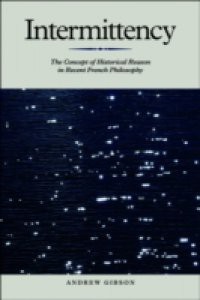Explores the concept of historical intermittency in 5 recent French philosophers. Andrew Gibson engages with five recent and contemporary French philosophers, Badiou, Jambet, Lardreau, Francoise Proust and Ranciere, who each produce a post-Hegelian philosophy of history founded on an assertion of the intermittency of historical value. Gibson explores this `anti-schematics of historical reason' and its implication for politics, ethics and aesthetics in a wide range of modern intellectual contexts, finding its necessary complement and most powerful expression in a wealth of modern art, chiefly modern literature. The result is a sustained reflection on the possible character of a contemporary philosophy of history and an important contribution to our knowledge of contemporary French philosophy.

